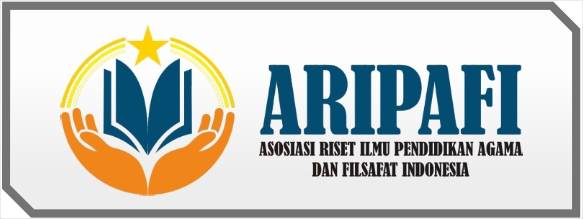Analisis Pesan Dakwah Pada Novel Bujang dan Jenderal Portugis Karya Harlis Kurniawan
DOI:
https://doi.org/10.61132/reflection.v1i4.185Keywords:
Analysis, Messages, Da’wah, NovelAbstract
The rise of Islamophobia worldwide is often fueled by ignorance and negative stereotypes about Islam. This situation calls for more effective educational efforts to counter misinformation and restore the image of Islam as a blessing for all, or Rahmatan lil 'Alamin. In response to this challenge, da'wah (Islamic preaching) through literature, especially novels, offers a way for readers to gain new perspectives and understand the complexities of religious life through engaging narratives that do not come across as patronizing. This study aims to identify the da'wah messages in Harlis Kurniawan's novel Bujang and Portuguese General and analyze the most dominant themes within the text. The novel serves as a potential medium for educating people, including non-Muslims, about the true teachings of Islam. The research employs a descriptive quantitative approach using content analysis. The data analysis involves categorizing the content, evaluating it through judges' assessments, and calculating the findings using Microsoft Excel and the Slovin formula, followed by interpretation of the results. The result of this study shows that the novel possesses 37.66% message of morality which is very dominant, 32.46% sharia messages, and of 29.88% aqida messages.
References
Abdallah, A. K. (2023). Quran burning - Will protests work. Karachi, 26(1), 38.
Agustianti, R. (2022). Metode penelitian kuantitatif dan kualitatif. Sulawesi Selatan: Tohar Media.
Arantxa, A., & Dory, M. (2024). Religious education and prevention of violent radicalization: Analysis of Catholic and Islamic education curricula in Spain. The International Journal of Religion and Spirituality in Society, 15(1), 11-12.
Aziz, J. A. (2019). Fiqih dakwah. Solo: Era Adicitra Intermedia.
Djerubu, D. (2022). Pengantar ilmu komunikasi. Sukoharjo: Pradina Pustaka.
Hasanah, D. S. (2022). The values of Islamic conduct in the. El Harakah Jurnal Budaya Islam, 24(1), 60.
Hawassy, A. (2023). Pengantar ilmu retorika dakwah. PT Ruang Rosadi Corpora.
Indra, B., Anggraini, C., Rizki, M., Kurnia, A., & Putri, D. (2021). Metode analisis isi (Metode penelitian populer ilmu-ilmu sosial). Malang: UNISMA Press.
Kuswandi, et al. (2023). Perancangan teknik industri. Padang: Global Eksekutif Teknologi.
Misno, A. (2022). Fiqh muamalah al-maaliyah hukum ekonomi dan bisnis.
Muhammad, et al. (2021). Fikih bisnis syariah kontemporer. Jakarta Timur: Prenada Media.
Munir, M. (2021). Manajemen dakwah. Jakarta Timur: Prenada Media.
Nuryantika, dkk. (2021). Strategi penerapan akhlak Islami “sadar sampah” di sekolah Islam terpadu. Indramayu: Penerbit Adab.
Pirol, A. (2018). Komunikasi dan dakwah Islam. Yogyakarta: CV Budi Utama.
Suhardjono, D. W. (2021). Kajian strukturalisme genetik dalam novel bertemakan religiositas. Yogyakarta: Garudhawaca.
Sukardi. (2022). Metode penelitian pendidikan tindakan kelas. Jakarta: Bumi Aksara.
Zin, K. M., & Bidin, S. N. (2020). Ayat-ayat terpilih berkaitan dengan botani dan geologi dalam Al-Qur'an: Kajian dari aspek i'jaz 'ilmi dan hubungannya dengan akidah. Jurnal Islam dan Masyarakat Kontemporari, 152.













